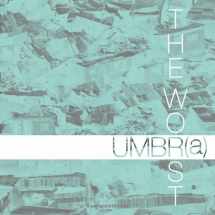
Umbr(a): The Worst
Book details
Summary
Description
Umbr(a) No. 1, 2011
Are we -- that is, those of us living at the start of a new decade of what was just the beginning of a new century -- special? As the ten year commemoration of the 9/11 attacks has come and gone, the world still finds itself under the long shadow cast by the War on Terror, the threat of global financial collapse looms large on the horizon, and the whisperings of the phrase austerity measures now resonate loudly across the liberal-democratic landscape from Athens to Washington D.C. In the U.S., against this all too familiar backdrop of endless war and financial distress, are the calcifying crises of labor rights, healthcare, education, and an income gap between the wealthy and poor that has become too visible for even the popular media to turn a blind eye toward. On top of this, what liberals once praised under the banners and shouts of hope has revealed itself to be little more than politics as usual, even as conservatives charge it with being the most radical presidency in American history.
There are, today, no shortages of catastrophes. When we place them alongside the natural and man-made disasters that continue to strike around the globe -- the ongoing famines and droughts, worldwide hunger, the effects of global warming, energy industry calamities, and so on -- the suggestion of total collapse becomes impossible to ignore. Are we bearing witness to a world inching ever closer to the edge of a precipice? Are things going from worse to worst? Every epoch has its worst, but could it be that our catastrophes -- in their magnitude, frequency, and finality -- are even worse?
The worst serves a function: to designate that which we cannot tolerate. Designating the worst is a simple gesture: Everyone, in principle, can point to the worst. But thinking the worst leads to an intractable contradiction. On the one hand, the worst catastrophe appears to be absolutely contingent, completely unpredictable, and essentially illegible. How can something be the worst, when a worse tragedy is always on the unforeseeable horizon? On the other hand, the worst seems to be the result of a profound necessity, the same necessity that brought the flood to Noah. Why would we need to designate that which is divinely sanctioned? Caught between the necessary (that which does not stop happening) and the contingent that which stops not happening), the worst -- itself, without historical reference -- demands further inquiry. Does the worst have a concept? Is it simply a notion fraught with paradox and nothing more? Or could it be that there is no superlative worst, only the relative worse?
As these questions are being posed in a journal that hosts psychoanalytic interventions into politics, philosophy, culture, and the clinic, it is well worth noting that while this year indeed marks the tenth anniversary of 9/11, it is also the fortieth anniversary of Jacques Lacan s nineteenth seminar, ...or Worse [...ou pire], which was published this year by Seuil. In this way, Lacan enters our contemporary scene in a timely manner -- but, of course, his discourse comes to us as untimely, by giving us a nudge, a reminder that thinking "the worst" is no simple matter, and drawing our attention toward what he identified as our "fatal destiny".


We would LOVE it if you could help us and other readers by reviewing the book
Book review



